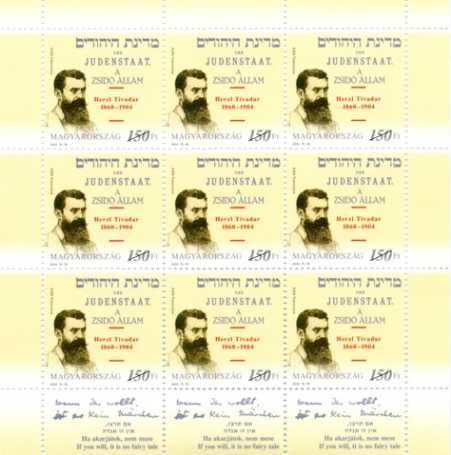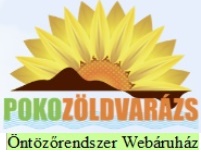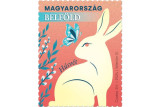
1. MAGYAR - HERZL TIVADAR - 1860 - 1904 - Bélyeg rendelési kód: S2004/003
2. ENGLISH - TIVADAR HERZL - 1860 - 1904 - Order code of the stamp: S2004/003
1. MAGYAR - HERZL TIVADAR - 1860 - 1904
Az Izraeli, az Osztrák és a Magyar Postaigazgatás „Herzl Tivadar”-ra emlékezve közös kiadásban alkalmi bélyeget bocsátott forgalomba.
A politikus és író, a Zsidó Állam megálmodója, Herzl Tivadar 1860. május 2-án született a budapesti Dohány utcában, ahol ma a Zsidó Múzeum és a nagy zsinagóga egyik fő épületszárnya található.
1878-ban családjával Bécsbe költözött, ahol az egyetemen jogot és irodalmat tanult. 1884-ben szerzett jogi doktorátust, de hamarosan elhagyta a jogi pályát, hogy csak szépírással foglakozzon. Számos írása – cikkek, novellák, regények – nyomtatásban is megjelent. Irodalmi sikereinek köszönhetően 1891-ben párizsi tudósító lett.
Több írását követően 1896-ban jelent meg német nyelven „A Zsidó Állam" című műve, amelyben kifejti cionista programját. Herzl 1897-ben Bázelben hívta össze az első cionista kongresszust, amely elnökévé választotta. Ezt a tisztséget haláláig viselte. 1902-ben tette közzé „Ősújország" című regényét, amely a cionizmus fontos mérföldkövének számít.
1896 és 1904 között bejárta egész Európát, személyes varázsával sok zsidó közösséget és vezetőt meghódított és megnyert elgondolásainak. Uralkodókkal, kormányfőkkel találkozott, megpróbálta meggyőzni őket a zsidó állam szükségességéről. A zsidó-cionista diplomácia első és talán legjelentősebb képviselője volt, az első zsidó az újkorban, aki a világ vezetőivel a zsidó nemzeti kérdésről tárgyalt, és elérte, hogy tárgyalópartnerei komolyan vegyék.
Politikai tevékenysége rendkívüli módon igénybe vette szervezetét, beteg szíve nem bírta azokat a lelki és fizikai megpróbáltatásokat, amelyet a magára vállalt küldetés követelt meg tőle. 1904. június 3-án távozott az élők sorából, végakaratának megfelelően földi maradványait 1950-ben Izraelbe vitték és Jeruzsálemben temették el.
A bélyegképen Herzl Tivadar portréja, valamint művének héber, német és magyar nyelvű címe jelenik meg. A bélyegív alsó ívszélét további feliratok díszítik német, héber, magyar és angol nyelven: „Ha akarjátok, nem mese”. Az izraeli, az osztrák és a magyar postabélyeg együttes bemutatásának céljából reprezentatív kivitelezésű emléklap készült, melyen alkalmi bélyegzéssel szerepelnek az újdonságok. A magyar kibocsátású alkalmi boríték, emléklap és az alkalmi bélyegző grafikáján főmotívumként a Dávid csillag jelenik meg.
Megjelenési időpont: 2004. július 6.
Forrás: Posta
2. ENGLISH - TIVADAR HERZL - 1860 - 1904
The Hungarian-born Austrian Jewish author Theodor Herzl (1860-1904) founded the World Zionist Organization and served as its first president.
Theodor Herzl, son of Jacob and Jeanette Herzl, was born on May 2, 1860, in Budapest, Hungary, where he attended elementary and secondary schools. In 1878 he was admitted as a law student to the University of Vienna, but after a year of legal studies he switched to journalism. He worked for the Allgemeine Zeitung of Vienna until 1892, when he took an assignment in Paris as correspondent for the Vienna Neue Freie Presse. In this capacity he reported on the Dreyfus Affair in 1894, and he was greatly troubled by the anti-Semitism he saw in France at the time. In 1896 Herzl started his political career with the publication of his pamphlet The Jewish State: An Attempt at a Modern Solution of the Jewish Question.
According to The Jewish State, persecution could not destroy the Jewish people but would accomplish the opposite: it would strengthen Jewish identification. In Herzl's view, effective assimilation of the Jews would be impossible because of the long history of prejudice and the competition between the non-Jewish and Jewish middle classes. Because of conditions in the Jewish Diaspora, some communities might disintegrate, but the people as a whole would always survive. Herzl believed that the Jews had little choice but to begin the concentration of the Jewish people in one land under its own sovereign authority.
To achieve this purpose, he organized the First Zionist Congress, which met in Basel, Switzerland, in August 1897. This meeting marked the establishment of the World Zionist Organization, whose executives were to be the diplomatic and administrative representatives of the Zionist movement. Herzl became president of the organization, a post he held until his death.
The official goal of the World Zionist Organization was the establishment of "a secured homeland in Palestine for the Jewish people." Because Palestine was part of Turkey and because Germany enjoyed a special relationship with Turkey, in 1898 Herzl met with Kaiser William II in an unsuccessful effort to win his support. In May 1901 Herzl was received by the sultan of Turkey, Abdul-Hamid II. But this meeting too had no positive results, since Turkey was not willing to allow mass immigration without restrictions to Palestine.
In view of the deteriorating situation of eastern European Jewry, Herzl considered other territorial solutions for the Jewish problem. The British government suggested Uganda for the Jewish mass immigration, but this plan was rejected by the Fourth Zionist Congress in 1903, which again stated the ultimate goal of Zionism as the establishment of a Jewish national home in Palestine.
During the Uganda polemics Theodor Herzl showed signs of grave illness. On July 3, 1904, he died and was buried in Vienna. According to his wishes, his remains were transferred by the government of the independent state of Israel to Jerusalem in 1949 and buried on Mt. Herzl, the national cemetery of Israel.
Date of issue: 6 Juli 2004


